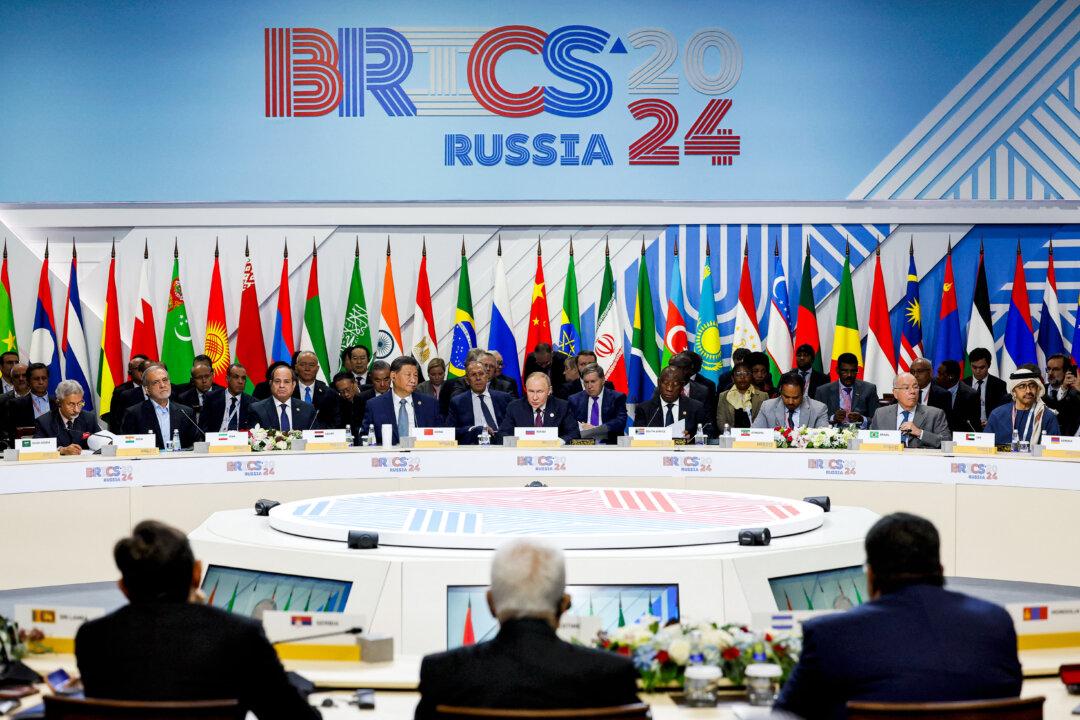China is implicated in Iran’s international money laundering system, according to a new report by The Wall Street Journal.
The Journal “reviewed financial transactions for scores of Iranian proxy companies in 61 accounts at 28 foreign banks in China, Hong Kong, Singapore, Turkey and the United Arab Emirates totaling several hundred million dollars,” according to the exclusive report, published on March 18.
“Western intelligence officials say there is evidence of tens of billions of dollars of similar transactions,” it said.

At the time, China had also stepped up purchases of Iranian oil. The Biden administration argued that a diplomatic approach was preferable to confronting Beijing about its support for Iran. The administration denied relaxing Trump-era sanctions.
The Iranian regime has confirmed much of the most important information in the Journal’s new report, having boasted publicly about its ability to conduct global trade, despite Western sanctions against its nuclear weapons programs.
Ian Talley, the author of the new report, wrote that “Iran established a clandestine banking and finance system to handle tens of billions of dollars in annual trade banned under U.S.-led sanctions, enabling Tehran to endure the economic siege and giving it leverage in multilateral nuclear talks, according to Western diplomats, intelligence officials and documents.”
The Iranian network is composed of foreign commercial bank accounts, proxy companies registered internationally, regular companies that coordinate the illegal trade, and “a transaction clearinghouse within Iran.”
The success of the Iranian network must have provided an example to Russian President Vladimir Putin when he invaded Ukraine, as a means, enabled by Beijing, to maintain international trade while under sanctions. Iran is close to Russia, both of which are part of China’s Shanghai Cooperation Organization (SCO), the closest that Beijing gets to an international alliance such as the North Atlantic Treaty Organization (NATO). Turkey is a “dialogue partner” of the SCO.
Iran has sought membership in the SCO for 15 years and finally, in September, was fully admitted to the organization. The SCO is a loose group of increasingly rogue nations dependent upon China for trade due to their pariah status internationally.

Beijing need not be so devoted to Tehran, however, due primarily to China’s economic power, massive global trade networks, and the dependency of the world on supply chains that reach into China’s deep industrial and technological manufacturing base. As William Figueroa noted in The Diplomat, “Iran may be forced to ‘Look East’ in the wake of the U.S. withdrawal from the JCPOA, but the Chinese government continues to look in many directions at once.”
The West keeps trying to convince China, Russia, Iran, and North Korea to play by international rules, like nuclear nonproliferation and a political evolution toward a better conception of human rights that were established after World War II to maintain international peace. But these countries, run by power-hungry dictators, keep refusing. The sincere attempts by democracies in this respect are a fool’s errand, where the fool is told repeatedly to kick the can down the road.
With China’s economic and military rise, however, the road is running out. It is time to toughen sanctions on all of these autocratic regimes, starting with their leading member in Beijing, and break the economic ties between them that enable their repeated and egregious violation of the international norms meant to preserve peace and security globally.





